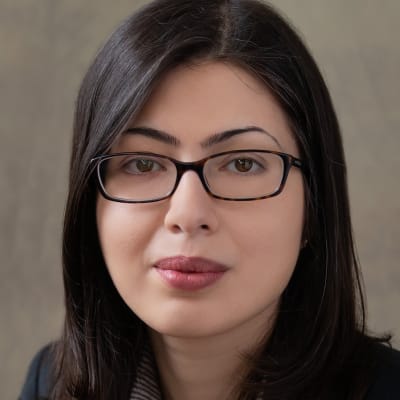The American Physical Society (APS) has awarded Prof. Shruti Puri the 2024 Rolf Landauer and Charles H. Bennett Award in Quantum Computing, the premier early career award in the field of quantum information.
This award recognizes recent outstanding contributions in quantum information science, especially using quantum effects to perform computational and information-processing tasks that would be impossible or infeasible by purely classical means.
Puri’s research is at the intersection of quantum optics and quantum information theory. When she entered the field, Puri was surprised by the division between those working on system architecture and those working on hardware. Because they were working separately, it meant that assumptions had to be made about what kind of errors could potentially happen - assumptions that aren’t always accurate. Puri’s background allows her to understand the hardware physics and the actual noise in the system, and determine the dominant sources of errors in the system that need to be anticipated and corrected.
Because they’re so incredibly small, qubits - fragile bits of quantum information - are particularly susceptible to any perturbations in their environment. Electromagnetic fields, pressure changes and other disturbances - referred to as noise - can destroy the phenomena that make quantum computing so potentially powerful.
“The errors are quite large in the system, so you need to really think about how to optimize your error correction code more than you do in the classical systems,” said Puri, assistant professor of applied physics.
The eventual successful application of quantum technology, she said, will require efficient and active quantum error correction to protect the fragile quantum states. In her research, Puri is working toward this goal with a combination of robust quantum circuit engineering, tailoring error correction codes for specific noise models, and engineering qubits with inherent noise protection.
“For a long time, people would usually design codes to correct for noise in a quantum system, just assuming a general kind of noise model to describe the system,” said Puri. “But because I was coming from more of a hardware physics background, this was just bizarre to me. How can you make codes to correct noise when you don’t understand the noise that’s particularly affecting the hardware?”
Puri designs hardware in such a way that the noise is of a very specific nature, and easier to correct. Once the hardware has been tailored, she can design much more effective error-correcting codes. In 2020, Puri and her research group published a paper introducing a specific quantum element that enabled the realization of a tailored error-correcting code, which could perform much better than a general code. That helped revived interest within the field in the idea of tailoring a system for more effective error correction.
“Since then, we have identified other sorts of physical hardware where you can design other types of noise and then develop how to do error correction for that specific tailored noise,” she said.
Puri received a Ph.D. in Applied Physics from Stanford University in 2014 after which she conducted postdoctoral research at University of Sherbrooke from 2014-2017 and at Yale University from 2017-2020. For her work on developing a more robust quantum computing system, she won a 2021 Faculty Early Career Development (CAREER) Award from the National Science Foundation (NSF).
